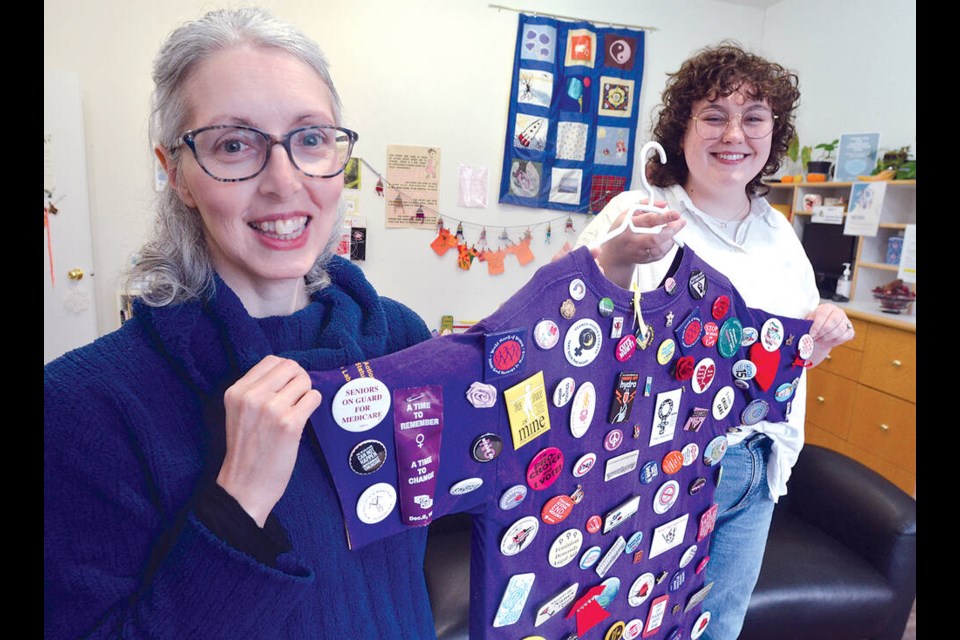When the North Shore Women’s Centre was first initiated in 1973, it was still legal to commit violence against a woman in the context of marriage. Girls and women faced systematic barriers in employment and education. Contraception and abortion had recently been decriminalized, but the number of organizations offering guidance and services remained lacklustre.
As the North Vancouver drop-in resource centre acknowledges its 50th anniversary, celebrations are bittersweet, says its executive director, Michelle Dodds.
This year will mark Dodds’ 25th with the organization, and in that time the centre has “grown tremendously,” she says. Yet while it has aided hundreds of women in those five decades, and there has been much change in form since the 1970s, beneath the political reform and feminist movements women are still working to overcome those same obstacles.
“I think people might wonder, haven’t we already achieved equality? Haven’t we got there already? The support that we provide to women on a day-to-day basis, we see that that is really not the case,” says Dodds. “Women are still struggling with the gender pay gap, having a child still does impact women’s careers and systemic barriers and inequities are still there for a lot of newer immigrant and refugee women.”
Finding different avenues to bring to light the considerable amount of intimate partner violence and sexual assault that still occurs in the community, she adds, is a “constant source of frustration” for women’s centres and organizations.
The free resource centre, a nursery blue painted cottage that sits on Second Street East in North Vancouver, provides a variety of programs and services for women facing such plight each year. It offers support sessions on the likes of solo parenting, health and wellness and separation, alongside free legal advice via the on-site family law clinic.
“There are so many different kinds of women that walk through our doors,” says Sydney Dawson, the centre’s fund development and communications co-ordinator.
“We see women who think they might be experiencing intimate partner violence, who are looking for the validation and assurance that they deserve to live in a safe home. We serve a lot of women who are newcomers to Canada, who don’t have the support network they would have had in the country they grew up in or got married in, and many more who are struggling with housing security or facing homelessness.”
While the centre isn’t a shelter – it instead teams up with organizations like the Lookout Housing and Health Society for emergency housing – it does provide a safe, comfortable space for women to do their laundry, call a loved one, check their emails or simply have a cup of tea.
“We know that home isn’t always the safest feeling space for everyone, so we want to make sure our drop-in resource centre is cozy and welcoming. It gives women a place to be when they don’t want to be at home, or they can’t be at home,” says Dawson.
The reality of women facing the same issues that they did five decades ago might seem bleak, says Dodds, but staff at the North Shore Women’s Centre are certain that there is hope on the horizon. A large pusher for change is raising awareness on such issues early on, she says, not waiting until adulthood to “learn about warning signs and red flags and ways that women can seek support.”
She lists of a raft of new programs and services that focus on informing the younger generation, from the Girls Empowerment Camp – a week long summer camp where women can talk about their problems while bonding over kayaking, nature walks, arts and crafts and self defence training – to the newly introduced Flip The Script program, sexual assault prevention training for high school and university aged young women.
“One area that we’re going to be doing more and more in is support for young women,” says Dodds. “If we’re going to witness change then it’s really about providing these types of resources and information early on, and talking about inequalities from the get-go. There is a brighter future for these women, it just starts with a better and fuller education.”
Mina Kerr-Lazenby is the North Shore News’ Indigenous and civic affairs reporter. This reporting beat is made possible by the Local Journalism Initiative.



